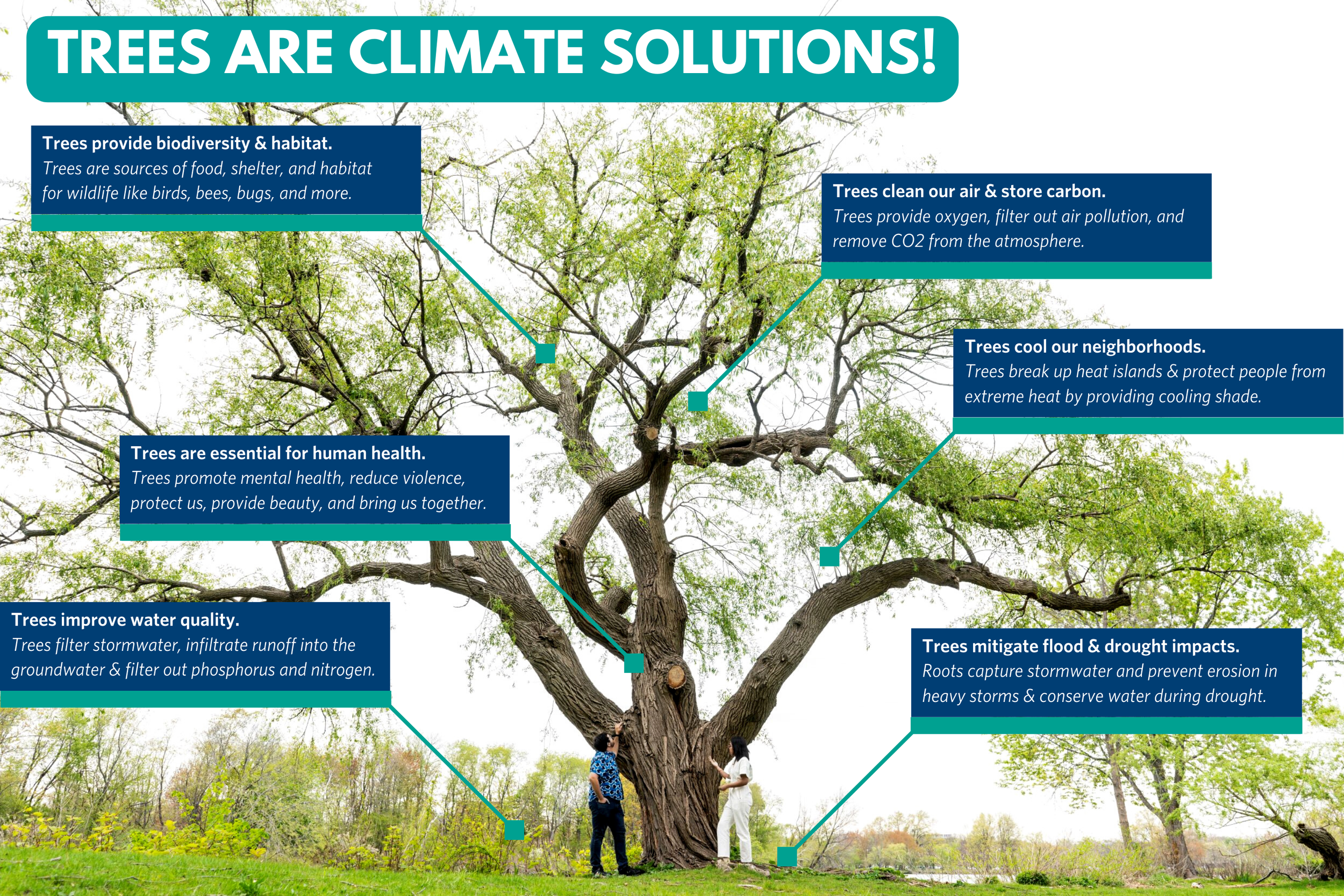It’s Heat Preparedness Week!
EXTREME HEAT ISN’T COMING––IT’S HERE.
In 2022, Boston recorded the hottest 30-day stretch in history, and saw four major heatwaves with temperatures exceeding 90 degrees for twenty-four days in 2021. By 2070, our watershed could see over 90 days of extreme temperatures each year.
Extreme heat is deadly—heat is the number one weather-related killer and it’s particularly dangerous for vulnerable populations including the elderly, children, people with pre-existing conditions, outdoor workers, and the unhoused.
EXTREME HEAT ISN’T FELT EQUALLY!
Think about a hot summer day in Boston: where do you feel cooler, a sunny parking lot or a shady park? We checked in on surface temperatures in Herter Park in Allston, and the results were stark: 74 °F under the shade of trees and 107 °F in the parking lot.
This is called urban heat island effect––neighborhoods with lots of pavement, fewer trees, and limited access to green space and cooling centers experience temperatures up to 10 degrees hotter in the summertime compared to greener neighborhoods, meaning health impacts are much more severe. And, urban heat islands are more likely to be located in environmental justice communities.
Every single person in our watershed deserves to live in a safe community––that’s why we are working to cool down neighborhoods and keep us all safe from the dangers of extreme heat.
WHAT WE ARE DOING ABOUT URBAN HEAT:
We are building community resilience to extreme heat by advocating for increased tree canopy and open space, building green infrastructure, researching heat impacts on a watershed scale, and sharing resources and information on how to stay cool.
STUDYING HOW TO MONITOR HEAT WITH BU METROBRIDGE
In Fall of 2022, CRWA collaborated with Boston University’s Metro Bridge program to research the best ways to measure urban heat impacts in Environmental Justice communities on a watershed scale to prioritize mitigation in the places that need it most. Students spent three months putting together a report analyzing all the different methods of measuring extreme heat and its impacts on water quality. This report will help CRWA identify the next best steps to measuring, analyzing, and reducing urban heat islands.
ADVOCATING FOR TREE CANOPY
Trees are one of our greatest climate solutions–– providing cooler neighborhoods, clean air, flood mitigation, cleaner water, and mental health benefits–– yet our watershed is losing tree canopy at an alarming rate. Since 2000, Massachusetts has lost over 3.5% of its tree cover. CRWA’s Climate Compact is working on a Regional Tree Protection and Planting Plan that will help maximize the benefits of existing trees, help protect mature trees from invasive species, and identify new opportunities for tree planting to build a robust, healthy tree canopy.
BUILDING GREEN INFRASTRUCTURE
Bringing nature back––that’s what Green Stormwater Infrastructure (GSI) does for our environment! Using trees, plants, soil, and chambers, GSI helps keep pollution from our parking lots, roadways, and lawns from polluting the Charles River and provides habitat improvement, cleaner air, shade, and cooling, which help reduce urban heat island effects!
WHAT CAN YOU DO ABOUT URBAN HEAT?
See a heatwave in the forecast? Make a point to check-in with your neighbors, especially if they are more susceptible to the risks of extreme heat. Find out how to protect yourself, your family, loved ones, and neighbors from extreme heat: CDC EXTREME HEAT TOOLKIT
Extreme heat makes it harder to breathe! Hot, humid air temperatures combined with air pollution from traffic & highways is a bad combination for those with asthma. When it's hot, stay inside & avoid strenuous activity, and support those who work outdoors with an offer of a cool drink + shade if you can.
Plant a tree! Neighborhoods with more paved surfaces & fewer trees can be up to 20 degrees hotter than surrounding areas. Be a part of the solution––plant a tree and protect mature trees in your backyard.



